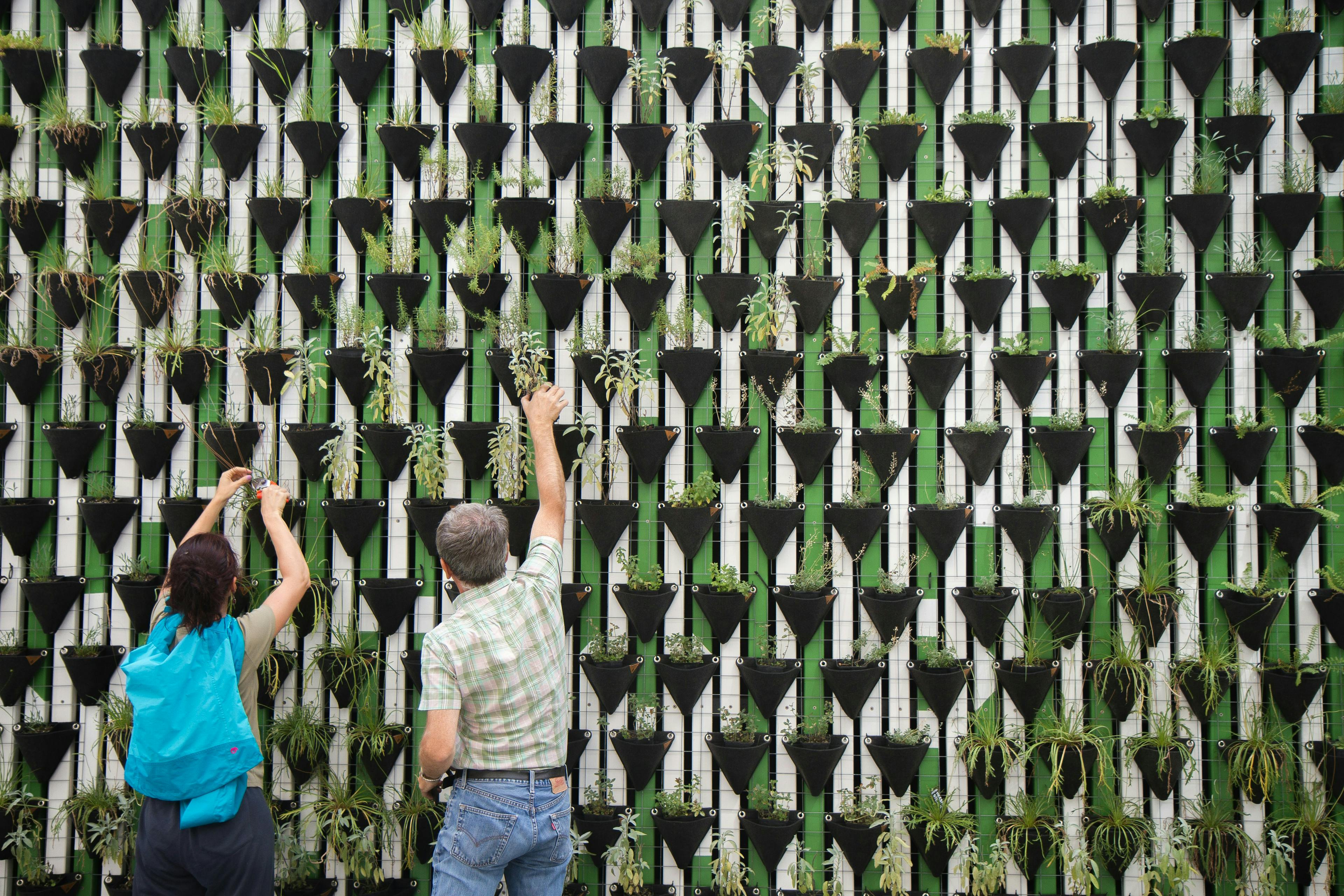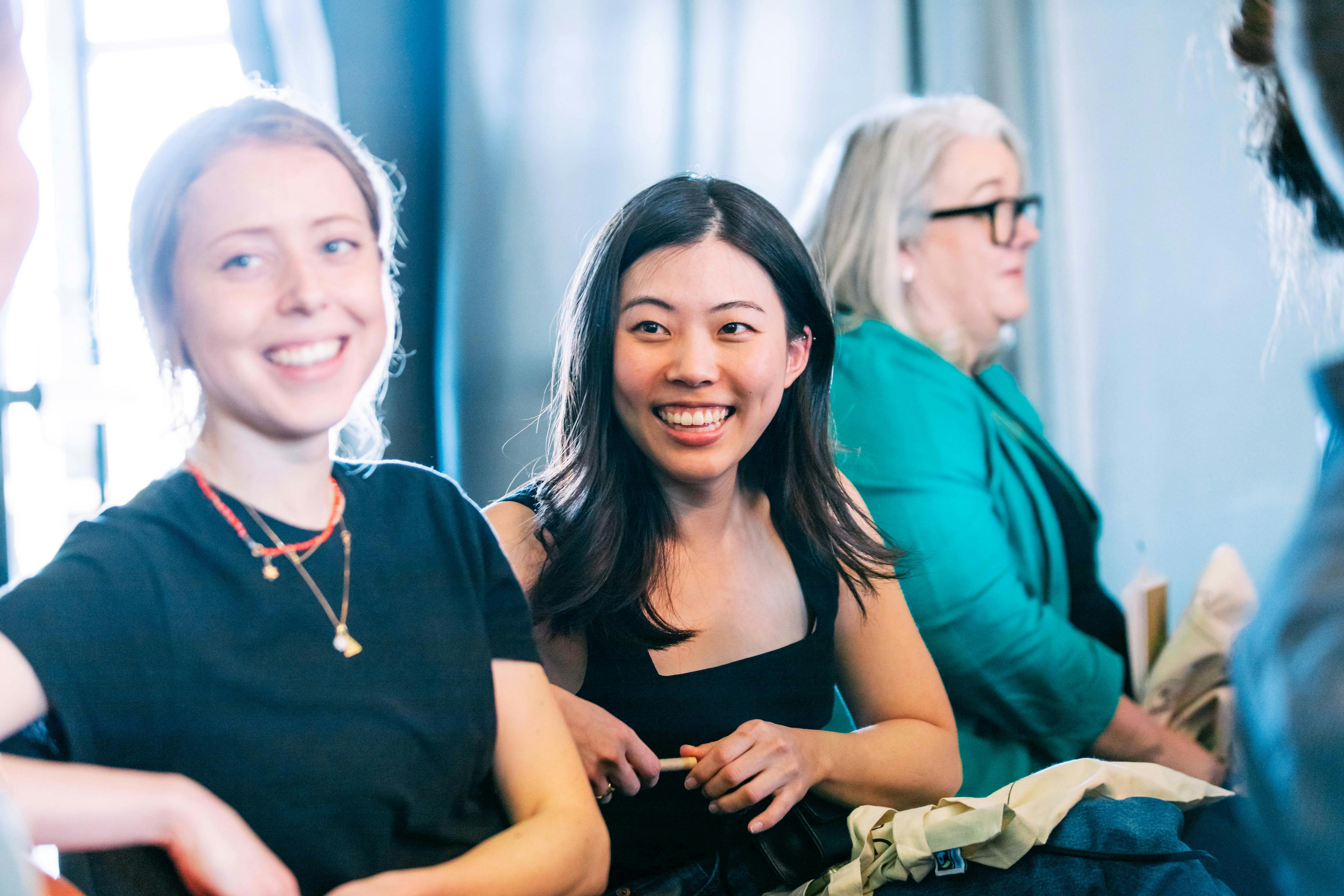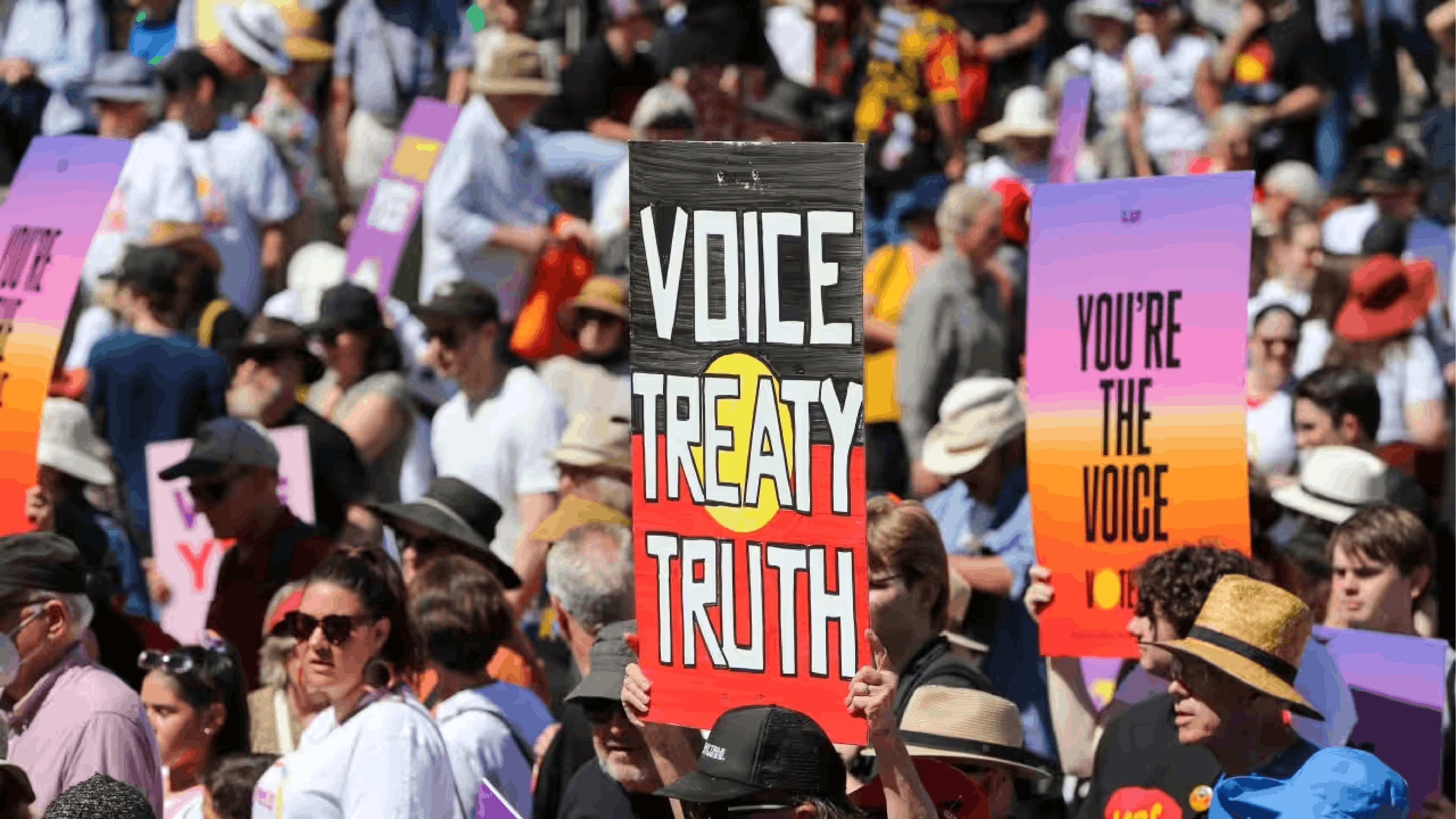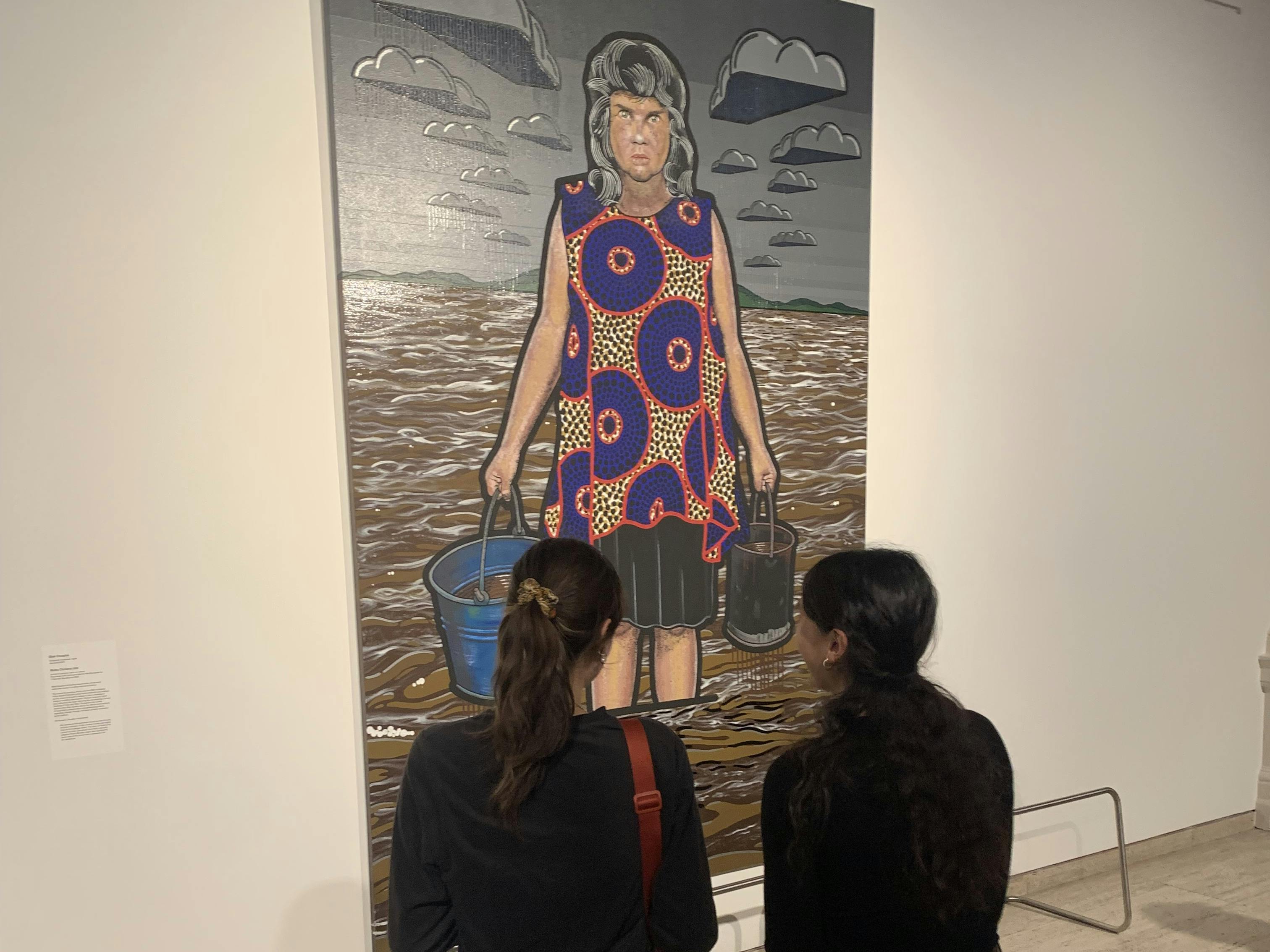
Our reflections from NAIDOC Week
Written by
Various Edge Contributors
Artwork by Blak Douglas displayed at Art Gallery NSW
At Edge, we know that we are just at the beginning of our Reconciliation journey, and opening this dialogue is important to us. Internally, we have been focusing our efforts on planning how to engage authentically and drive impactful change by integrating First Nations thinking into our strategies and operations.
We are also proud of our team, who drive these conversations and recognise the importance and necessity of Indigenous knowledge for nature protection and restoration, not only in Australia but across the globe.
Our team truly reflects our values, with many striving to engage authentically by actively learning, listening, and showing up, even if mistakes are made. This includes crafting unique and meaningful Acknowledgements of Country, sharing stories from events attended, promoting Indigenous art and materials, as well as inviting First Nations speakers and thought leaders.
Fuelled mostly by our genuine passion, but also forming part of our ongoing commitment, our teams in Eora (Sydney) and Naarm (Melbourne) attended several NAIDOC Week events.
We share their reflections and learnings below and look forward to continuing learning and listening on this journey.
Finding Genuine Connection: A NAIDOC Week Reflection
Written by Rachael De Costa, Marketing Manager
July 2025

King Stingray live at the Art Gallery of NSW. Photo credit: Rachael De Costa.
This year, writing my reflection on NAIDOC Week didn’t come as easily as it has in the past. I found myself caught up in a tension of trying to identify the “right” corporate events for us to attend as a team, versus simply leaning into the things we’re each genuinely drawn to.
As a result, this week became about engaging authentically and following what felt meaningful, not what felt expected.
That led me to see one of my favourite bands, King Stingray, an incredible group of Yolŋu (Aboriginal people from northeast Arnhem Land) and balanda (non-Indigenous) musicians from the Northern Territory and Queensland, perform live at the Art Gallery of NSW in Eora (Sydney).
Their album For the Dreams was actually introduced to me by a colleague at Edge, and quickly became a favourite of mine. So, hearing those songs live, surrounded by art, music, and community, was a pretty special way to celebrate NAIDOC Week.
Another way I’ve tried to engage more meaningfully this week has been through continuing to read Plants: Past, Present and Future, part of the First Knowledges series. It’s a powerful book that highlights the depth of Indigenous ecological knowledge and what can be applied in today's context.
One passage that really stood out to me:
“We as a society seem to be hovering above Country, never deeply engaged enough within her, almost as though we are scared to really look her in the eye, and to find where we each fit.”
It struck a chord, not just personally, but in the context of the work we do at Edge. Our team is deeply committed to sustainability, and we often talk about weaving together the stories that connect people, business, and nature. That quote felt like a reminder of why that matters.
What I’ve taken from this week is that engaging meaningfully shouldn’t feel like ticking a box. It’s okay to still be learning. It’s okay to get it wrong sometimes. If it comes from a place of active listening, curiosity, and genuine respect, that effort counts.
No matter our backgrounds, we all have a role to play, not just during NAIDOC Week but in continuing to push for reconciliation, truth-telling, and deeper connection with First Nations peoples and Country.
That’s work that never ends, and it’s work we should all lean into, together.
Integrating First Nations thinking into our everyday actions

July 2024
At a cultural workshop, we had the privilege of engaging in a meaningful Q&A session with Josh Devine from First Australians Capital.
Josh’s insights were profound, focusing on the importance of shaping our lives and decisions around future generations and being custodians of our land. He emphasised the ripple effect of our decisions and the significant influence we, both as individuals and as sustainability consultants, have on the projects we undertake.
It reinforced the importance of integrating First Nations perspectives into our work and provided us with practical steps to make this a reality.
As we reflect on the workshop, we are reminded that the fear of getting things wrong should not paralyse us into inaction.
It also created space for us as individuals to go and seek further knowledge through community events and resource hubs.
Nature connects us all
Written by Alex Shute, Designer
July 2024
This week we were treated to a cultural performance by Gawura Cultural Immersions as a part of Eora’s (Sydney’s) NAIDOC week celebrations.
This rich collection of stories about the Creation Father Biamii and Mother Earth was not only beautiful to watch, but instilled that Australia’s First Peoples are the original sustainability leaders, and they have been for over 60,000 years.
The dancers’ portrayal of the ‘Emu in the Sky’ story illustrated how their ancestors studied intricate celestial patterns to inform the right time to harvest emu eggs. This understanding of natural cycles and sustainable resource management ensured the preservation of species and maintained ecological balance, a stark contrast to the modern consumption policies we know today.
Stuart’s closing message - “Nature connects us all” left me with a strong feeling of admiration for Australia’s First Peoples. Their roles as environmental stewards not only preserves the environment, but has enhanced their community's wellbeing for millennia. What a powerful reminder of the value of Indigenous wisdom and culture.
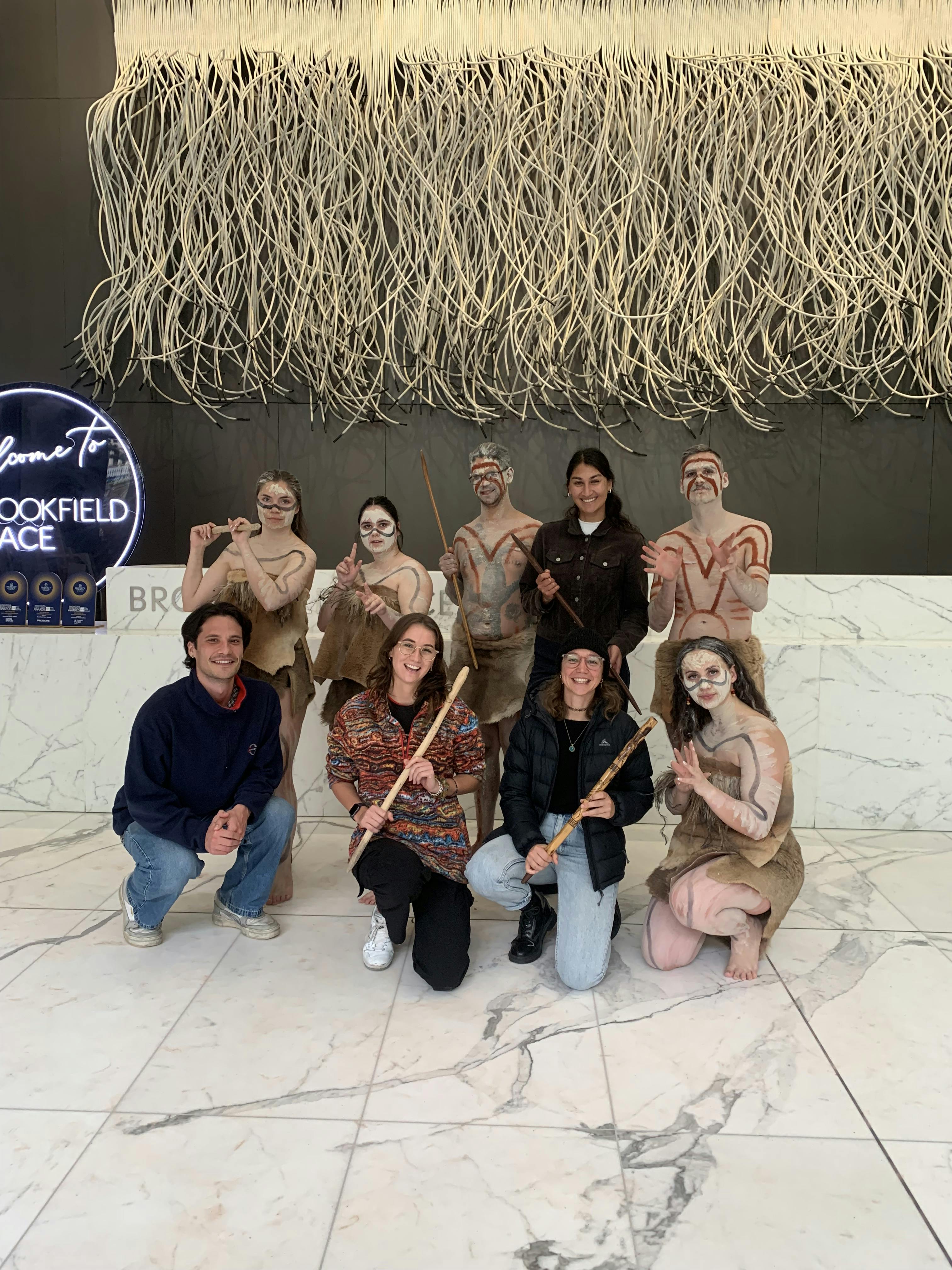
The Expressions of Storytelling
Written by Rachael De Costa, Marketing Manager
July 2024
This week has been a journey of connection and discovery, marked by inspiring conversations. Reflecting on these experiences, I can't emphasise enough how refreshing it is to be in an environment where these dialogues are not only welcomed but nurtured and encouraged.
My reflection here is just a glimpse into the profound stories we encountered one Thursday night during NAIDOC Week in Eora (Sydney) as we made our way to the NSW Art Gallery to attend the event, Blak Country.
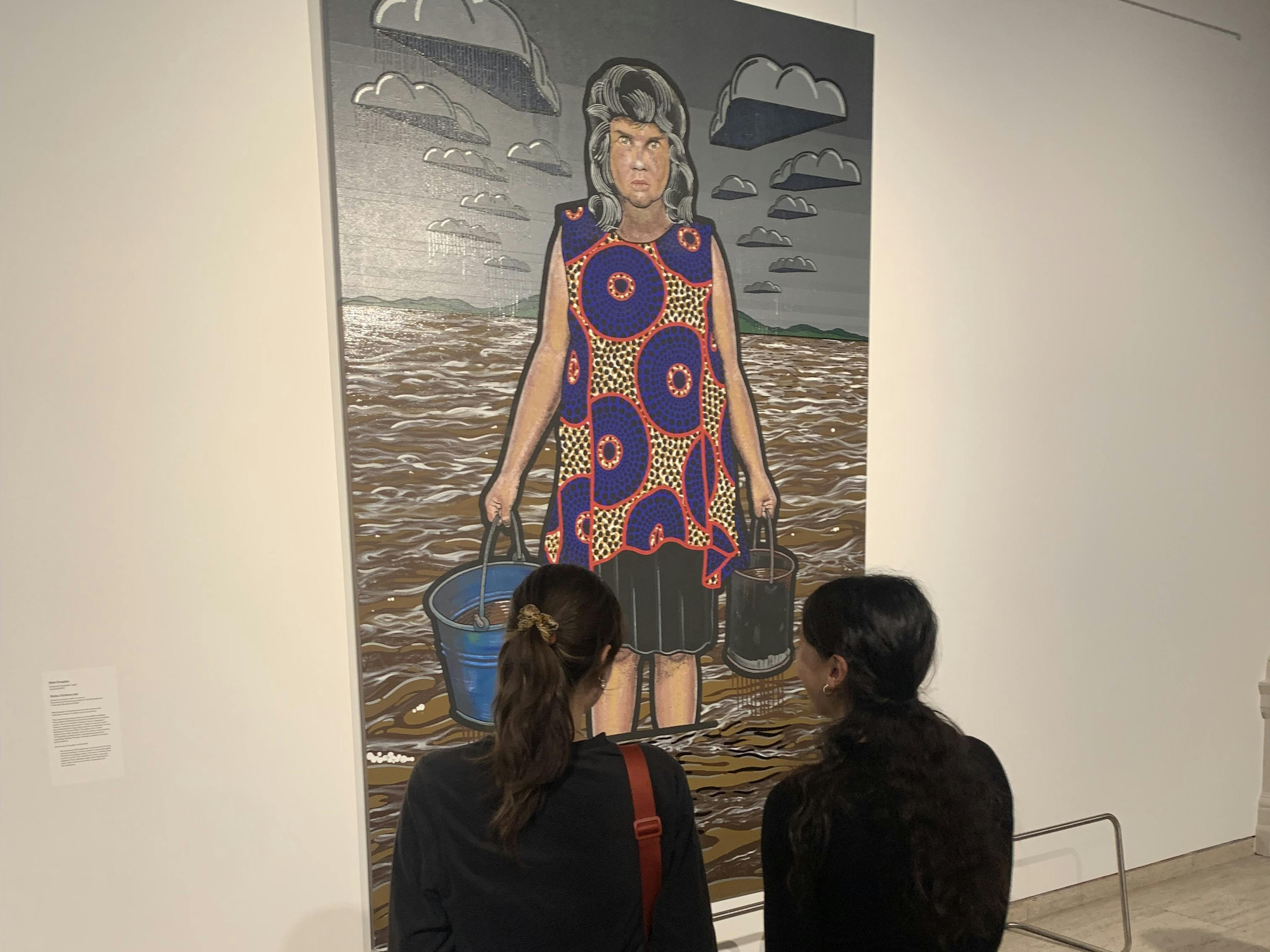
Upon entering the gallery, we were met by the powerful artwork titled Moby Dickens 2022 by Blak Douglas. This striking painting, which won the 2022 Archibald Prize, conveys deep concerns during a time of global unrest due to the climate crisis. The themes of connection to and protection of the earth, as well as the urgent call for climate action resonated throughout the evening and were a common thread in the songs performed.
We had the privilege of hearing Uncle Roger Knox and his two grandsons perform. The space created was just unbelievably special. Uncle Roger fostered a space for storytelling, for dancing, tears, and laughter. His songs explored poignant themes, contrasting the serene valleys and streams of the Australian bushland with the harsh imagery of concrete and bars, and tender words dedicated to loved ones who have been incarcerated.
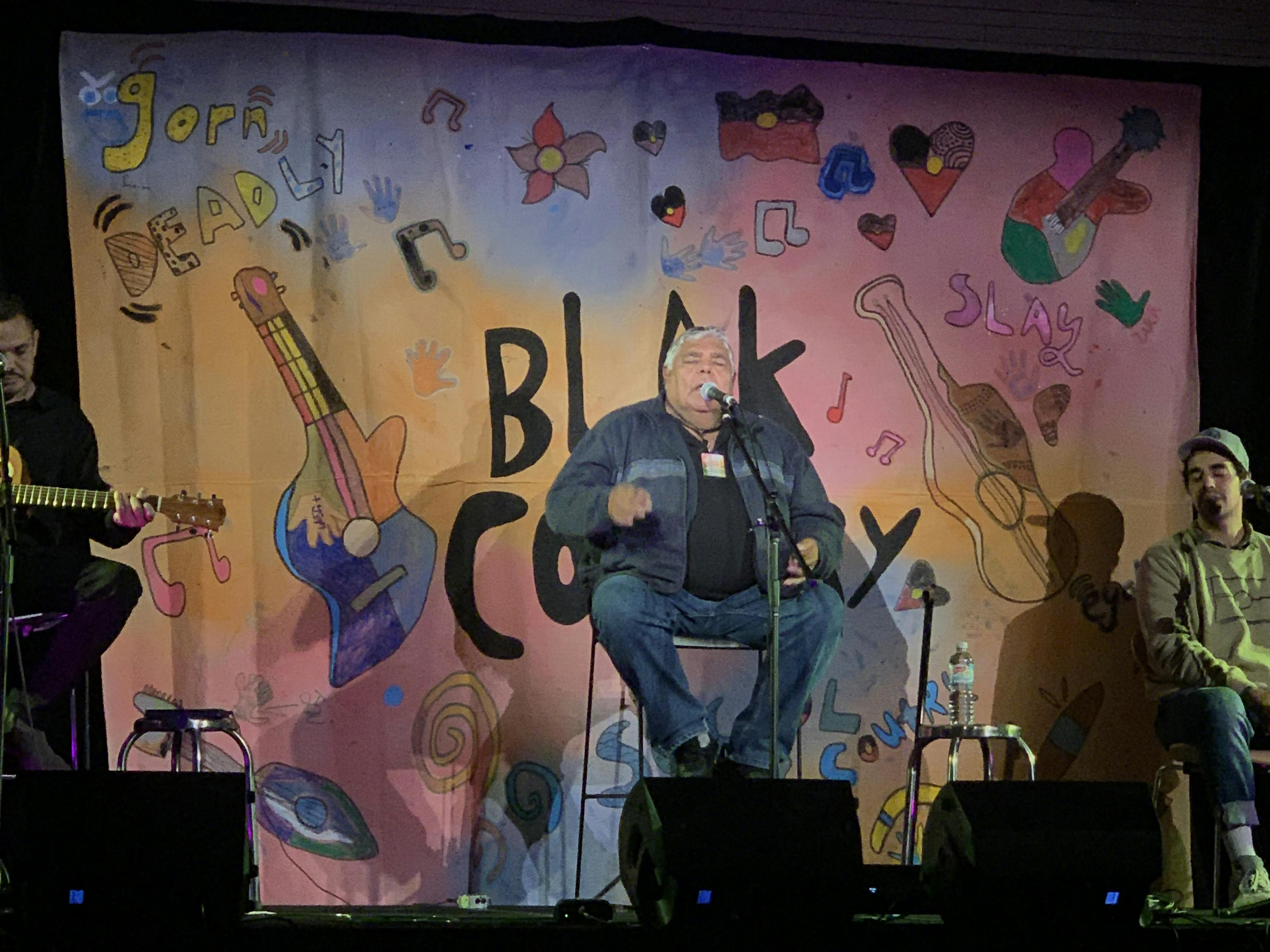
In between the live performances, a playlist dubbed ‘Music from Malabar Mansion’ after the nickname given to the Long Bay Correctional Complex was heard throughout the gallery. It featured songs written, performed, and recorded by men and women in NSW correctional facilities as part of the Songbirds project run by the Community Restorative Centre.
Upon reflection of the event, the role of music and art became profoundly clear: they are expressions of hope, despair, and ultimately, connection. These forms of storytelling are essential, bridging gaps and bringing us closer to understanding each other's journeys and culture.
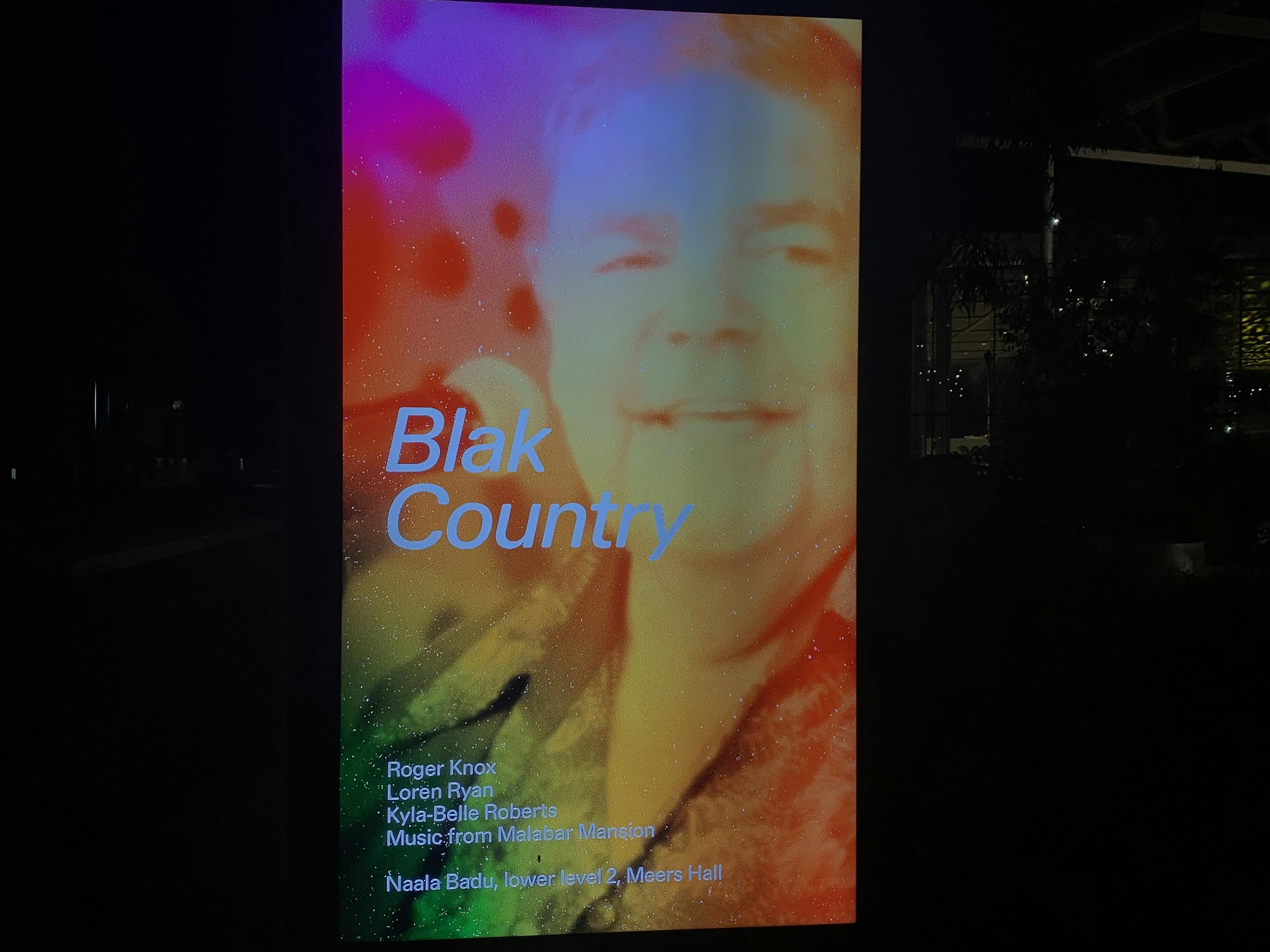
We have started a collaborative playlist here.
Feel free to listen to some of the Indigenous artists sharing their stories through music, and help us grow the playlist!
